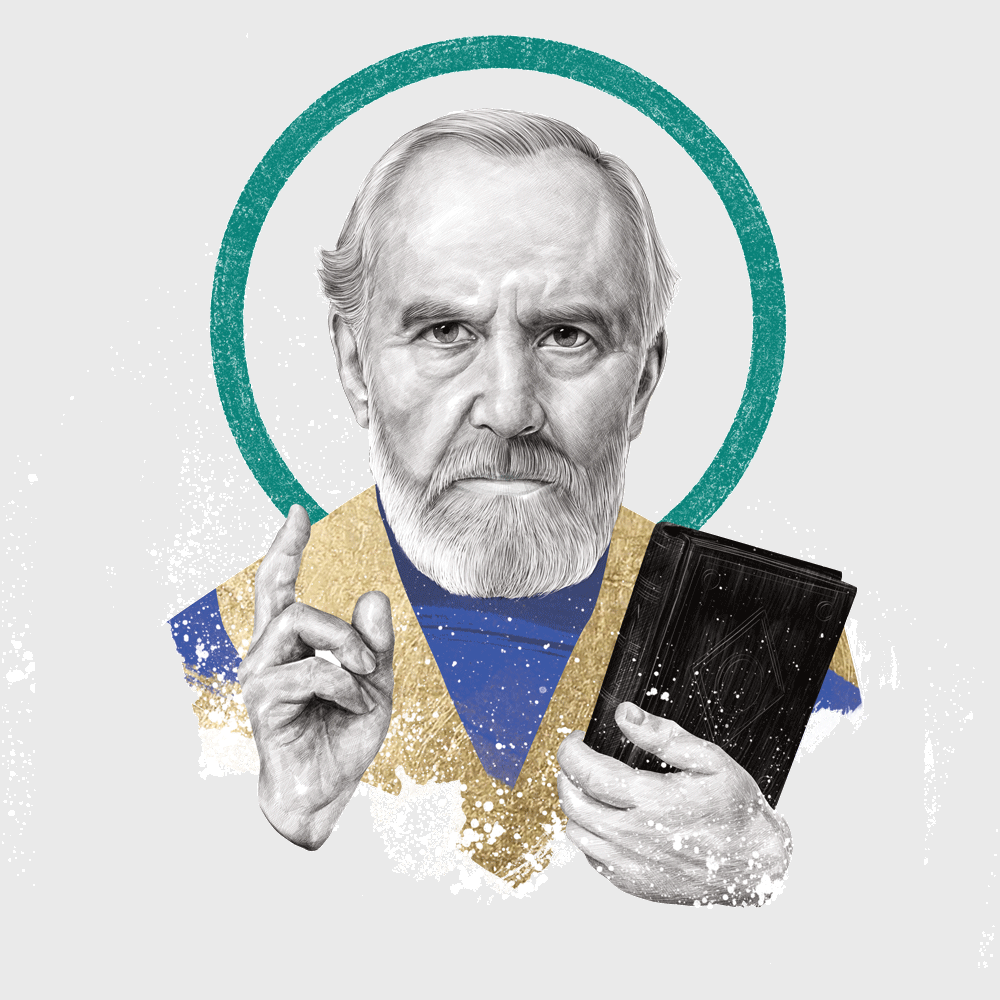
Love’s a funny thing—especially in English. This singular word can describe how much we really like pizza, a cool painting, a favorite sports team, our siblings, a significant other or best friend, that new Pentatonix cover—practically anything and anyone—even God!
While other languages have multiple words for love, in English it’s hard to distinguish exactly what this word means—or how serious it is—when we use it all the time. In Greek, the word found in Scripture describing the highest form of love is agape. It’s a selfless, sacrificial, unconditional love. It is an action. A verb. The love we are called to have for everyone we meet.
This February, we dive into the story of Susie Swift. Service for others and agape love was written all over her life.
Swift’s faith journey was a bit of a roller coaster. After growing up in a Presbyterian home, she had a conversion experience at age 14 in the Methodist Church, was agnostic through college, became an officer in The Salvation Army, and eventually became a Catholic nun. Though she left the Army, her time of love and service was pivotal to growing the Army’s mission.
Love At First Sight
During a visit to Glasgow, Scotland, Swift and her friend Ella Leonard snuck into a Salvation Army Corps out of curiosity. They later returned for the evening service. It wasn’t the singing or music that caught their attention and brought them back; rather, it was the testimonies of how Christ was active in those Salvationists’ lives.
“The spiritual…experiences of these people seemed so much above the language in which they were able to describe them!” Swift wrote in her diary. “The doubts, the conflicts, the complications, which we had been wont to set down as peculiar to people of a certain amount of culture, seemed to have been theirs as well as ours. Could it be that the acts of surrender and faith by which they claimed to have broken through all their entanglements were possible for us?” (Soldiers of the Cross)
After Swift’s 1883 conversion in The Salvation Army, she and her friends would go to Army meetings all around England. As Swift wrote, they were “getting mixed up with Salvationists from sheer love of them” (Soldiers of the Cross). Their action of love—how the Salvationists exemplified Christ in their lives, brought Swift and many others to find salvation.
Dear Diary
Much of what is known about Swift’s life comes from her own diary entries and reflections. Putting her skill for language into direct service, Swift edited the Army’s missionary magazine, All the World, published by International Headquarters. First printed in November 1884, it served as a monthly record of The Salvation Army’s operations and helped bring in funds for the Army’s vast missionary efforts. Swift also wrote hundreds of stories, poems, and biographical sketches for Army journals.
Love: The Verb
Beyond pen and paper, Swift dedicated much of her life to service. Check out some of her incredible acts of love:
- Swift worked in social services in London’s East End slums
- Rescued women from prostitution
- Saved street children from hunger and homelessness
- Helped wayward boys at London’s “waifs* and strays” home (similar to an orphanage)
- Founded a home for newspaper boys on Fleet Street in London
- Sponsored a child, Eliza Madeley, and became her adoptive mother
Writing History
In the spring and summer of 1890, Swift wrote the first outline of The Salvation Army’s new social program. This led to the publication of In Darkest England and the Way Out, a book filled with practical ideas for reversing poverty in Victorian British cities.
Love Points To Love
Serving the poorest of the poor is a powerful thing. And that goodness works at least two-fold: helping solve the immediate issue, and pointing others to the love of Christ. Swift’s acts of agape love pointed others to God—the author of love—and brought many souls to Christ.
* A waif is a homeless or helpless person, especially a neglected or abandoned child.
The Heart Of It
Love comes in many forms. It’s not always romantic or sentimental, and it’s meaning often goes beyond really liking something. Serving others is an act of love. Loving others even when they don’t seem deserving is agape. Agape is God’s love. It is an everlasting, true love that surpasses all else. Just as Christ had and still has agape love for us, we too are called to love unconditionally, without judgment.
“I have loved you even as the Father has loved Me. Remain in My love. When you obey My commandments, you remain in My love, just as I obey My Father’s commandments and remain in His love. There is no greater love than to lay down one’s life for one’s friends” (John 15:13).
Susie Swift dedicated her life to serving others, aiming to exemplify agape. Agape is possible at all times, even if we’re not directly serving the neediest people out on the streets. To find out if you’re living in agape, read 1 Corinthians 13. How do you measure up?
1 Corinthians 13
“If I could speak all the languages of earth and of angels, but didn’t love others, I would only be a noisy gong or a clanging cymbal. If I had the gift of prophecy, and if I understood all of God’s secret plans and possessed all knowledge, and if I had such faith that I could move mountains, but didn’t love others, I would be nothing. If I gave everything I have to the poor and even sacrificed my body, I could boast about it; but if I didn’t love others, I would have gained nothing.
Love is patient and kind. Love is not jealous or boastful or proud or rude. It does not demand its own way. It is not irritable, and it keeps no record of being wronged. It does not rejoice about injustice but rejoices whenever the truth wins out. Love never gives up, never loses faith, is always hopeful, and endures through every circumstance.
Prophecy and speaking in unknown languages and special knowledge will become useless. But love will last forever! Now our knowledge is partial and incomplete, and even the gift of prophecy reveals only part of the whole picture! But when the time of perfection comes, these partial things will become useless. […]
Three things will last forever—faith, hope, and love—and the greatest of these is love.”
This article was originally published in the February 2017 issue of YS. Photo Credit : The Salvation Army National Archives and Research Center



